
Supertramps are species that have spread around the world in association with humans and they include rats, house mice and a host of weedy plant species. Among birds, arguably the greatest supertramp is the House Sparrow. From its origins in the Middle East, the House Sparrow followed the spread of agriculture throughout Europe and southern Asia and its expansion was only halted in eastern Asia by competition with the closely related Eurasian Tree Sparrow.
During the second half of the 19th century, House Sparrows were introduced to New York, Buenos Aires, Melbourne, Durban and Zanzibar and, aided by further introductions, spread rapidly throughout much of the New World, Australasia and Africa. They are now found in man-modified habitats throughout much of the world and are considered to be one of the most abundant birds on earth.
Much of their success stems from their ability to live in modified habitats. House Sparrows are at home foraging for scraps indoors and are often found inside shopping centres and airport terminals. Most breed in cavities in buildings; indeed, in southern Africa, Dassen Island is the only place they regularly breed in trees, because there are only a few buildings with suitable nesting sites. Famously, a pair even bred 640 metres underground in a Yorkshire coalmine!
However, for the past few decades there have been concerns about decreases in urban House Sparrow populations. This was first highlighted in the United Kingdom, where there is the longest record of sparrow numbers. Populations initially fell in the 1920s, when the shift to motor vehicles reduced the amount of spilled horse food.
この記事は African Birdlife の January/February 2022 版に掲載されています。
7 日間の Magzter GOLD 無料トライアルを開始して、何千もの厳選されたプレミアム ストーリー、9,000 以上の雑誌や新聞にアクセスしてください。
すでに購読者です ? サインイン
この記事は African Birdlife の January/February 2022 版に掲載されています。
7 日間の Magzter GOLD 無料トライアルを開始して、何千もの厳選されたプレミアム ストーリー、9,000 以上の雑誌や新聞にアクセスしてください。
すでに購読者です? サインイン

EXPLORING NEW HORIZONS
Keith Barnes, co-author of the new Field Guide to Birds of Greater Southern Africa, chats about the long-neglected birding regions just north of the Kunene and Zambezi, getting back to watching birds and the vulture that changed his life.

footloose IN FYNBOS
The Walker Bay Diversity Trail is a leisurely hike with a multitude of flowers, feathers and flavours along the way.
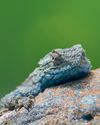
Living forwards
How photographing birds helps me face adversity
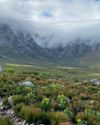
CAPE crusade
The Cape Bird Club/City of Cape Town Birding Big Year Challenge
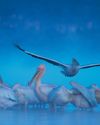
water & WINGS
WATER IS LIFE. As wildlife photographer Greg du Toit knows better than most.
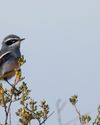
winter wanderer
as summer becomes a memory in the south, the skies are a little quieter as the migrants have returned to the warming north. But one bird endemic to the southern African region takes its own little winter journey.
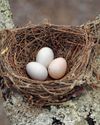
when perfect isn't enough
Egg signatures and forgeries in the cuckoo-drongo arms race

Southern SIGHTINGS
The late summer period naturally started quietening down after the midsummer excitement, but there were still some classy rarities on offer for birders all over the subregion. As always, none of the records included here have been adjudicated by any of the subregion's Rarities Committees.

flood impact on wetland birds
One of the features of a warming planet is increasingly erratic rainfall; years of drought followed by devastating floods. Fortunately, many waterbirds are pre-adapted to cope with such extremes, especially in southern Africa where they have evolved to exploit episodic rainfall events in semi-arid and arid regions. But how do waterbirds respond to floods in areas where rainfall - and access to water - is more predictable? Peter Ryan explores the consequences of recent floods on the birds of the Western Cape's Olifants River valley.
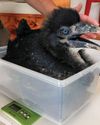
a star is born
It’s every producer’s dream to plan a wildlife television series and pick the right characters before filming.